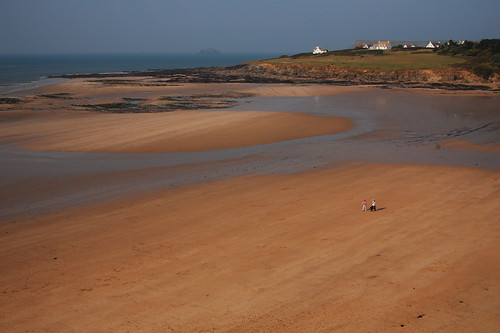I was gonna finish this post quite a few days earlier, but after an enthusiastic start I didn't get very far. The first paragraph fell onto the page as if it were meant to be there, but in its wake a gaping void of thought opened and sucked in all the energy and creativity that I had at my disposal. It was a fitting sequence of events because what had got me excited in the first place was an article in the New Yorker about procrastination.
In it, James Surowiecki, the magazine's economy and finance writer and author of the bestseller The Wisdom of Crowds, reviews the recently published anthology on the subject, The Thief of Time. A hefty hardback with a price out of this time, it's not a book I'm likely to buy. But the review introduced a number of intriguing concepts and idea that I'm sure I would enjoy reading more about. A Christmas present, anyone? (But no, I wouldn't enjoy 300 pages that I know someone paid sixty bucks for.)
Some background and general blah-blah to start with: Procrastination, the delaying of inevitable tasks without rational justification, is painful and stupid – yet everyone does it. For every crucial item on a to-do list, there are at least a dozen distractions and mindless activities that intervene. Somehow they appear irresistible and are allocated a priority they don't deserve. And as the initial task was inevitable, getting it done after much procrastination causes great suffering, a painful hustle before it's too late, midnight-hour bouts of drowsy industry that are usually regretted.
I do this all the time. I prepare presentations at the last minute, at a time when I would rather sleep than assemble reaction pathways and remember minutiae of collaborators' publications. I remember the brainbone-breaking take-home exams in the first year of graduate school. All references were allowed – and the expectations correspondingly high. One biochemistry exam was due in class Monday morning at 9. I put the last keystroke to my questionable masterpiece at 8:15, with just enough time to get a coffee before I collapsed, in good company, in the auditorium. I don't remember this, but I probably spent most of the preceding weekend out riding the Wasatch.
When I took Arabic, the last two years, I would remember fifteen minutes before each week's kick-off that I had homework to do. In the panic that ensued, I couldn't even recall how to write my name, let alone ask a Lebanese fishmonger for directions to the nearest World Heritage Site. And every fall I put off booking my Christmas flight back to Germany until I have to pay more than the dilapidated plane is worth. (Ahem, this actually reminds me of something...)
So far, so bad. If my tedious rambling has driven you from the computer and into the outstretched arms of pending duties (doing the dishes or paying the electricity bill), I'd have done a good job. You would feel the warmth of aprocrastination – but you would also miss the interesting part of this post, nicked from the New Yorker but worth reading if you don't want to make the trip to a few sheets of Big Apple.
By procrastinating you and me act in what is ultimately against our best interests. We're going to have to pay for it, and we know it. So how come we can usually not overcome it? Some of the assays in the anthology in questions go some of the way towards answering this puzzling question. Others suggest how this behavior can be avoided or at least contained, and throw up theories to explain and maybe even justify it.
I don't want to repeat all the points made by Surowiecki, especially since I didn't read the book and don't have anything original to contribute, but some ideas deserve mentioning. There is the divided self, for example. It's a mild form of schizophrenia, if I understand this correctly, an inherent in almost all of us. At every point of decision, the hedonist and the utilitarian in us are battling it out. Will we do work no? Will we enjoy? Unless we're Lance Armstrong, the hedonist usually wins and the utilitarian has to catch up later, and maybe there's not even a point fighting.
But maybe there is, and if so the key is willpower. According to scientific studies, will can be trained, rather like a muscle. And rather like pumping iron, training one's will probably takes dedication and stamina. For the feebler-minded, there are tools, instruments to cut out distractions and short-term attractions. There's a small script for download that cuts the network upon request, guaranteeing up to eight hours of uninterrupted work. Or you can chain yourself to your desk much like Odysseus had himself chained to the mast of his ship to hear the Sirens without losing himself.
I don't have much willpower and I suffer great regrets. But I still wouldn't go out of my way and restrain myself from temptations. I rather sit on my desk, imagining websites I'd visit if I weren't working so hard and feeling, with a physical force, the power of my developing will. Two hours later, my writing hasn't progressed much but I feel pride in not having giving in to the cheap temptations of procrastination. I have simply wasted my time.


